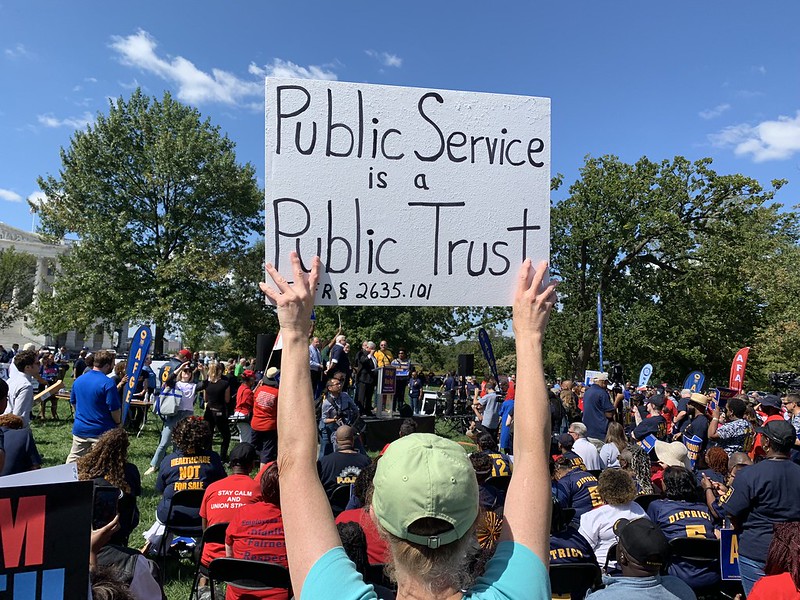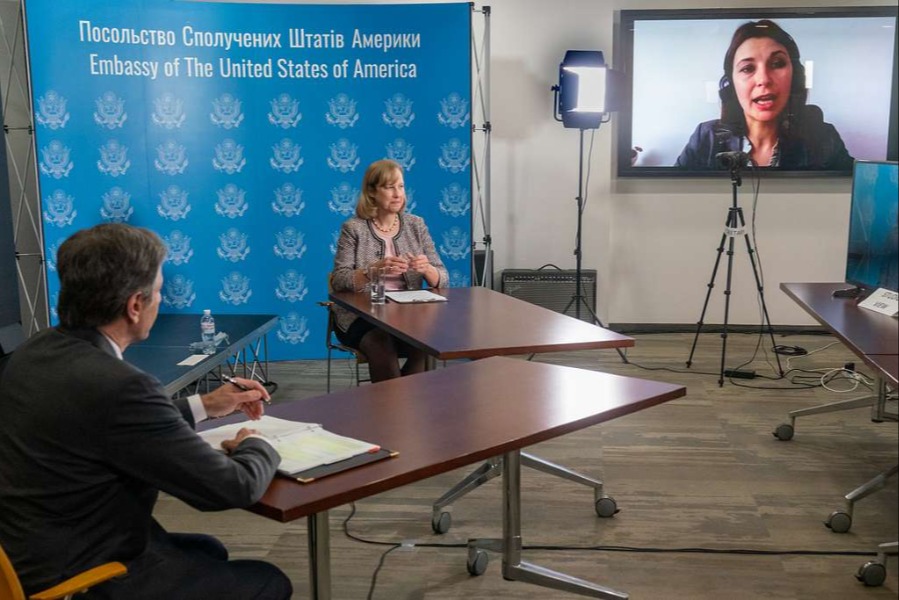Kiobel: Supplemental Briefs on Extraterritoriality are In...
Lawfare readers will recall that in March the Supreme Court ordered the case of Kiobel v Royal Dutch Petroleum to be re-briefed and reargued to address the additional question of whether the Alien Tort Statute applies to violations of international law occurring in the sovereign territory of other countries. The final supplemental briefs were filed on August 8. In addition to the briefs of the parties, there were a total of 50 supplemental amicus briefs (all available on SCOTUSblog), far s
Published by The Lawfare Institute
in Cooperation With

Lawfare readers will recall that in March the Supreme Court ordered the case of Kiobel v Royal Dutch Petroleum to be re-briefed and reargued to address the additional question of whether the Alien Tort Statute applies to violations of international law occurring in the sovereign territory of other countries. The final supplemental briefs were filed on August 8. In addition to the briefs of the parties, there were a total of 50 supplemental amicus briefs (all available on SCOTUSblog), far surpassing the 36 amicus briefs filed in the opening round (which had focused on the issue of whether corporations can be held liable for violations of international law). I have provided some initial comments on several of these briefs below the break. The Supreme Court has ordered re-argument on the extraterritoriality issue for October 1, the first argument on the first day of the term.
Twenty-nine supplemental briefs were filed in mid-July in support of the plaintiff-petitioners, more than doubling the 14 briefs filed in support of the plaintiff-petitioners in the first round. A principal reason for the increase may have been that the oral argument in February in the opening round appeared to go badly for the petitioners, with Justices Kennedy, Alito, and Roberts questioning whether the ATS applies extraterritorially.
Fourteen supplemental briefs were filed in support of Shell on August 8. These included briefs written or submitted on behalf of three members of this blog. Jack Goldsmith submitted a brief on behalf of six U.S. companies. Ken Anderson was on a brief with seven other law professors. And I submitted a brief (co-written with Paul Clement) on behalf of seven U.S. companies.
Seven briefs were also filed in July nominally in support of neither party. These included a brief submitted by the United States (about which I previously commented), urging dismissal of the suit against Shell on the basis that the ATS should not apply extraterritorially in so called foreign-cubed cases (while also urging the Court not to decide now whether the ATS applies extraterritorially to U.S. nationals or companies); a brief submitted by the Governments of the United Kingdom and the Netherlands; and a brief submitted by the European Commission.
I have not had a chance to read all 50 briefs, but here are a few highlights:
1. Four former State Department Legal Advisers (Davis Robinson, Abe Sofaer, William H. Taft IV, and Edwin Williamson) have submitted a brief (drafted by Kristin Myles) describing the State Department’s longstanding international law and foreign policy concerns with ATS litigation and critiquing the hazy “facts and circumstances” test urged by the U.S. brief as to when the ATS should apply to extraterritorial conduct. This brief reminds the Court that, even in its Filartiga and Kadic briefs, the Executive branch expressed concerns about allowing U.S. courts to exercise jurisdiction where the alleged conduct and the parties had minimal connection to the United States. In Filartiga, the U.S. brief to the Second Circuit argued that “abstention is generally appropriate … when the parties and the conduct alleged in the complaint have as little contact with the United States as they have here.”
2. The Government of Argentina filed a strange brief supporting the extraterritorial application of the Alien Tort Statute, ostensibly because this has allowed accountability for human rights violations during the military government in Argentina. To my knowledge, this is the only foreign government that has ever supported extraterritorial application of the ATS. All other foreign governments have strongly objected to the extraterritorial application of the ATS as an infringement on their sovereignty. One wonders whether the Argentine Government would be quite so keen to have U.S. courts judge whether Argentine corporations have committed human rights violations in their operations elsewhere in Latin America, or whether the present Kirchner government has committed human rights violations inside Argentina?
3. The American Bar Association filed a brief largely devoted to policy arguments why U.S. courts should be available to remedy human rights violations around the world. The ABA argues that a narrow reading of the ATS would “diminish the United States’ voice in fostering universal adherence to norms of international law.” While nominally espousing “rule of law,” it’s surprising that the ABA makes no mention in its brief of the limits in international law itself relating to the exercise of extraterritorial jurisdiction.
4. The Governments of the United Kingdom and the Netherlands submitted a brief nominally in support of neither party, but actually supporting Shell. They argue that international law does not permit U.S. courts to exercise jurisdiction over the acts of foreign corporations (such as Shell) in third countries where there is no nexus to the United States. It’s a little puzzling why the two governments, who filed a brief in support of Shell in the first round, are now filing in support of neither party, but presumably they are trying to appear more “neutral” after they were criticized by European human rights groups for defending an Anglo-Dutch oil company against human rights claims. Nonetheless, they assert that “For the U.S. to allow the ATS to provide the basis for such claims would clearly interfere with other nations’ sovereignty and be plainly inconsistent with international law and the concept of international comity….”
5. The European Commission has submitted a brief in support of neither party that makes so many conflicting arguments as to be of little value to the Court. The Commission argues that the ATS may be applied “where the defendant is a United States national or the conduct implicates United States security interests of fundamental importance” and also to “a narrow category of the most grave international law violations involving conduct of universal concern so long as the ATS claimant demonstrates that those States with a nexus to the case are unwilling or unable to provide a forum and no international remedies are available.” The Commission does not say how these principles should be applied in the present case.
6. In our brief on behalf of several U.S. companies, Paul Clement and I reprise some of the arguments we made to the Supreme Court in 2008 in the Apartheid case (which the Court was unable to take because of conflicts). We point out, inter alia, that extraterritorial application of the ATS in most cases violates the Court’s longstanding proscription (first enunciated in 1897 in Underhill v Hernandez) against allowing U.S. courts to “sit in judgment on the acts of the government of another, done within its own territory.” In the future, will the Supreme Court itself want to decide, without a clear mandate from Congress, whether acts by China or Russia or Saudi Arabia inside their own countries violate the “law of nations”? We also note that ATS litigation is likely to continue unless the Court provides clear guidance for the lower courts. For example, even if the Court decides that the ATS does not apply to violations of international law in other countries, unless the Court is clear about which extraterritorial acts are covered and which are not, ATS plaintiffs will bring new cases alleging that U.S. persons or companies have committed tortious acts inside the United States by planning, or failing to stop, actions outside the United States.
John B. Bellinger III is a partner in the international and national security law practices at Arnold & Porter in Washington, DC. He is also Adjunct Senior Fellow in International and National Security Law at the Council on Foreign Relations. He served as The Legal Adviser for the Department of State from 2005–2009, as Senior Associate Counsel to the President and Legal Adviser to the National Security Council at the White House from 2001–2005, and as Counsel for National Security Matters in the Criminal Division of the Department of Justice from 1997–2001.





